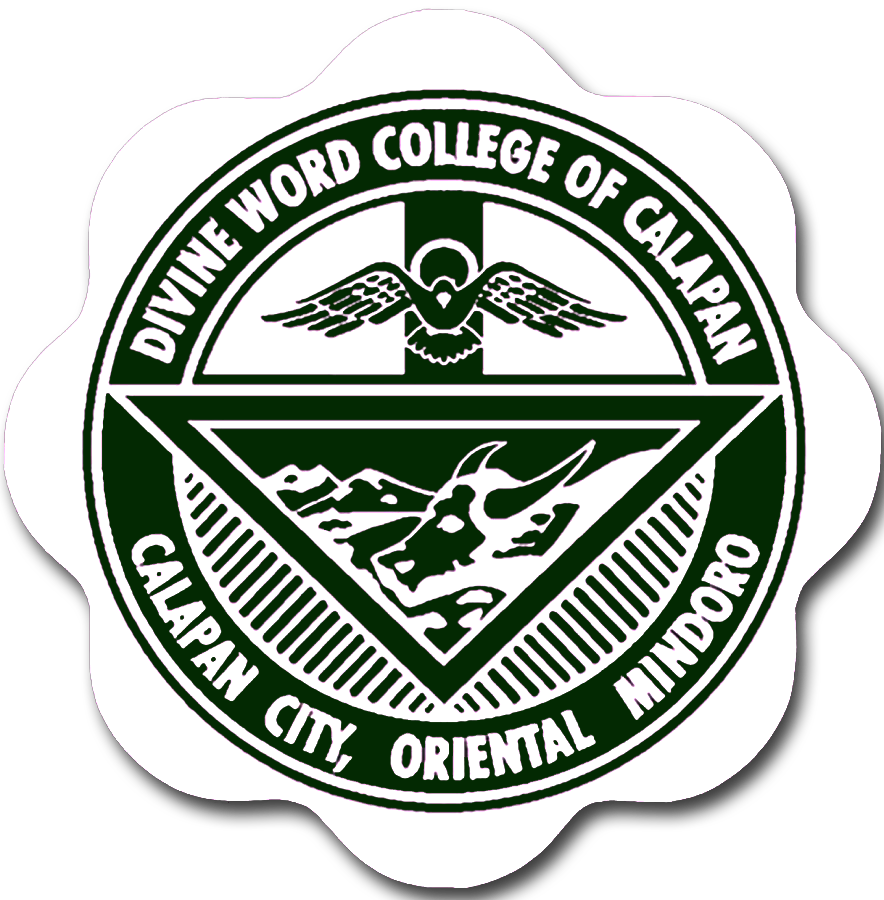Junior High School
- About
- Subject Descriptions
- Grading System
- Organizational Structure
- Faculty & Staff
ABOUT
The Junior High school About is currently updating its content. It will be posted soon.
Subject Descriptions
DepEd Subjects
Integrated Language Arts (Filipino and English) | Filipino and English subjects aim for the development of oral and written written communicative competence of learners. It observed a spiral progression of the competencies across the level. For secondary, there is a greater emphasis on reading comprehension, writing, and thinking strategies. |
| Mathematics | Mathematics is a subject that pervades life at any stage. It ensures continuity of learning through progression of topics in five content areas: Numbers and Number Sense, Geometry, Patterns and Algebra, Measurement, and Statistics and Probability. |
| Science | Science develops scientific literacy among students towards application of scientific knowledge that will have social, health and environmental impact. Concepts and skills in Life Sciences, Physics, Chemistry and Earth Science are presented with increasing levels of complexity. |
| Araling Panlipunan | Araling Panlipunan contain concepts about self, community and local history of the learner. It covers a deeper understanding of the history, geography, politics, economy and national development in Philippine, Asia and in world. |
| Edukasyon sa Pagpapakatao with Christian Living | Edukasyon sa Pagpapakatao (ESP) focuses on honing an individual’s capacity to make moral and ethical decisions and actions. ESP is based on ethics and career guidance which covers concept of self and humanity, moral values, career choices and responsibility. |
| Technology and Livelihood Education with Computer | TLE courses equips knowledge and information, skills and processes, right work values and life skills in the field of Home Economics, Industrial Arts, Agri-Fishery Arts, and Information Communication Technology. |
| MAPEH | -Music and Arts focus on the learner as both recipient and constructor of knowledge, skills and values necessary for artistic expression and cultural literacy. -Physical Education is anchored on the tenet, “Move to learn, learn to move” with the ultimate goal of achieving lifelong fitness.-Health education focuses on the physical, mental, emotional, social, moral and spiritual dimensions of holistic health, promote good nutrition, prevent and control disease, abuse and control injuries. |
Elective Subjects (SSC)
| Basic Statistics w/ Research | Basic Statistics w/ Research is designed to provide a basic understanding of descriptive and inferential statistics. Topics include the basic concepts of statistics, collection, organization, presentation, analysis and interpretation of data, measures central tendency, variability, position, probability and qualitative research. |
| Earth Science | Earth Science study the interaction of the earth sciences and physical world. Special topics and fieldwork from the disciplines of geology, astronomy, meteorology, oceanography, and related sciences may be covered. |
| Intermediate Algebra | Intermediate Algebra course covers operations with real numbers, graphs of functions, domain and range of functions, linear equations and inequalities, quadratic equations; operations with polynomials, rational expressions, exponents and radicals; equations of lines. |
| Research in Science | Research in Science focuses on the Science Investigatory Process. SIP is a scientific research project typically undertaken in school as a class or term project or in a science fair or exhibition. It is meant to get school-children interested and inquisitive about science. |
| Advanced Statistics w/ Research | Advanced Statistics w/ Research is designed to provide a basic understanding of descriptive and inferential statistics. Topics include the random variables, normal distribution, sampling distribution, test of hypothesis, correlation and regression analysis and quantitative research writing. |
| Basic Physics | Basic Physics course provide basic concepts and understanding in the nature and properties of matter and energy. Topics focuses on motion, energy, waves, sound, light, heat and electricity. |
| Advanced Chemistry | Advanced Chemistry is designed to focus on the Composition, structure, and properties of matter; quantitative principles, kinetics, and energetics of transformations of matter; and fundamental concepts of organic chemistry. |
| Research | Research allows students to deeply explore an academic topic, problem, issue, or idea of individual interest. Students design, plan, and implement a yearlong investigation to a address a research question. Through this inquiry, they further the skills they acquired in research by learning research methodology, employing ethical research practices, and accessing, analyzing, and synthesizing information. Students reflect on their skill development, document their processes, and curate the artifacts of their scholarly work through a process and reflection portfolio. |
Elective Subjects (Regular)
| Speech | Speech subject provides drills and exercises based on standard general American speech using the International Phonetic Alphabet and develop English Rhythm through word stress, intonation, phrasing and blending skills. |
| Journalism | This course informed the students about the impact and importance of journalism in a society. The roles of journalism will also be highlighted as well as the different categories of journalism. Moreover, they will be enlightened how to uncover the truth and injustices. It is also important to inculcate in their minds the significance of freedom of information and to be updated to what is happening in the word. |
| Business Mathematics | This course will provide an understanding of the basic concepts of Mathematics as applied in business. It includes the review of fundamental mathematics operations using decimals, fractions, percent, ratio and proportion, buying and selling, gross and net earnings, and data presentation. |
| Statistics | Statistics will serve students both science and non-science especially in engineering, mathematics, statistics, computer science, or natural science. This coursed have endeavoured to achieve sound statistical data by reducing the large amounts of data into useful information. |
Grading System
A. The grading policies and procedures of Divine Word College of Calapan High School Department are based on the DepEd Order No.8, series of 2015, “POLICY GUIDELINES ON CLASSROOM ASSESSMENT FOR THE K TO 12 BASIC EDUCATION PROGRAM.”
The K to 12 Basic Education program uses standards-and competent-based grading system. These are found in the curriculum guides. All grades will be based on the weighted score of the to pass a specific learning area is 60, which is transmuted to 75 in the report card. The lowest mark that can appear on the report card is 60 for Quarterly Grades and Final Grades.
Learners from Grades 1 to 10 are graded on Written Work Performance Task and Quarterly Assessment every quarter. These three are give specific percentage weights that vary according to the nature of the learning area.
For Grades 1 to 10
In a grading period, there is one Quarterly Assessment but there should be instances for students to produce Written Works and to demonstrate what they know and can do through Performance Tasks. There is no required number of Written Work and performance Tasks, but these must be spread out over the quarter and used to assess learners’ skills after each unit has been taught. The following are the steps in computing for the Final Grades.
Step 1. Grades from all student work are added up. This results in the total score for each component, namely Written Work, Performance Tasks, and Quarterly Assessment. Raw scores from each component have to be converted to a Percentage Score. These are parallel to each other to ensure that values are parallel to each other.
Step 2. The sum of each component is converted to the Per Score. To compute the Percentage Score (PS). di raw score by the highest possible score then multiply by 100%. This shown below:
Step 3. Percentage Scores are then converted to Weighted Scores to show the importance of each component in promoting learning in the different subjects.
To do this, the Percentage Score is multiplied by the weight of the component found in the Table 4 for Grades 7-10 The product is known as the Weighted Score (WS).
WEIGHTED SCORE (WS) = Percentage Score X Weight of Component
Table 4. Weight of the Components for Grades 1-10.
| GRADES | COMPONENT | LANGUAGES, AP, EsP | Science, Math | MAPEH, EPP/TLE |
1-10 | WRITTEN WORK | 30% | 40% | 20% |
PERFORMANCE TASK | 50% | 40% | 60% | |
QUARTERLY ASSESSMENT | 20% | 40% | 20% |
Step 4. The sum of the weighted Scores in each component is the Initial Grade. This Initial Grade will be transmuted.
Step 5. The Quarterly Grade for each learning area is written in the report card of the student.
B. There shall be four (4) grading periods and averaging system in getting the general
C. The passing grade in any given subject shall be seventy-five (75) The lowest grade that can be given to a student after transmutation of performance shall be sixty (60).
D. Any student representing the school is assured that his/her academic grades will not be affected while attending out-of-school activities approved and recognized by the institution such as seminars workshops, contest, camps, fairs, conferences and other and provided he/she complied with other requirements by the subject teacher.
E. A student representative who is a winner in a contest will be given a special consideration such as exemption from some subject requirements and or increase in grades especially to some related subject areas.
F. A student-representative who is non-winner will also be given a special consideration to related subjects but increase in depends on the performance in the contest.
PROMOTION AND RETENTION
The following requirements for promotion or graduation of a student from any recognized educational program or course shall be observed and strictly followed every private school (sec. 80 Manual).
- No student shall be given any school credit toward the completion of or graduation from a program or course, unless he/she has enrolled and satisfactorily fulfilled the admission requirements, faithfully and regularly attended classes, and acquired reasonable proficiency in each subject of the approved curriculum (Sec. 82, Manual) promotion shall be by learning areas. A student who fails in one (1) or two (2) learning areas is promoted to the next year level shall repeat the learning areas in which he/she failed. (DepEd Order No.43, S 2002)
- No student shall be permitted to take any advanced subject until he/she satisfactorily passed the basic and prerequisite subject/s To pass a subject, a student should receive a final rating of 75% or its equivalent A student who receives a final rating of less than 75% or its equivalent shall be considered failed and should repeat the subject The passing grade in any learning area shall be 75%, while the lowest grade that can be given to a student after the transmutation of the performance shall be 60%. (DepEd. Order No 8, s.2015).
- The record of attendance and grading sheets for each school year should be filed in the school until the end of the next school year or term, for reference or examination in case of any grievance or complaint.
A student in the DWCC BED who fails in any grade level at the end. of the school year will be advised to transfer to another school. This is deemed to be for the best interest of the student who, apparently, is unable to cope with the academic standard of the school.
REPORT CARDS (Form 138)
- Report cards, which are considered official documents, are issued on schedule dates. These are to be signed by the parent/guardian and to be return to class adviser within three (3) days after receipt.
- Tampering of the report card is considered a major offense.
- Any student who signs his report card or causes any unauthorized person to sign it is also committing a serious offense.
GUIDELINES IN THE SELECTION OF HONOR STUDENTS
(Enclosure to DepEd Order No. 36, s. 2016)
POLICY GUIDELINES ON AWARDS AND FOR THE K TO 12 BASIC EDUCATION PROGRAM
Organizational Structure
The Junior High school organizational structure is currently updating its content. It will be posted soon.
Faculty & Staff
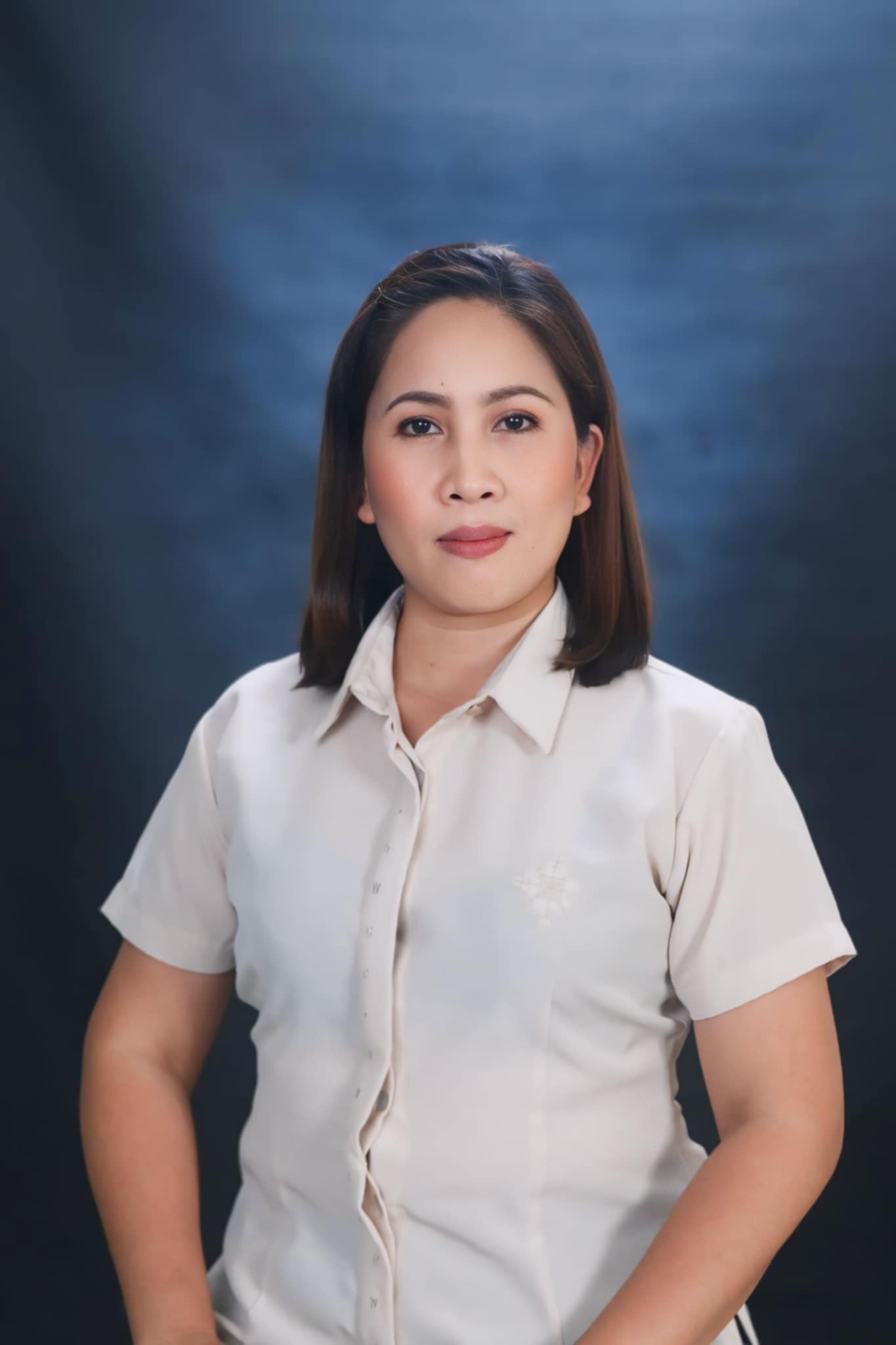
Ms. WELLA JOISE T. ABELGAS
Grade 10 Adviser, TLE and AP teacher
- Bachelor of Secondary Education major in Technology and Livelihood Education

Ms. AIRA CAMILLE D. ALCALA
Grade 10 Adviser, English Teacher
- Bachelor in Secondary Education major in English

Mr. REDINTOR C. BACATAN
Grade 8 Adviser, Filipino Teacher
- Bachelor in Secondary Education major in Mathematics
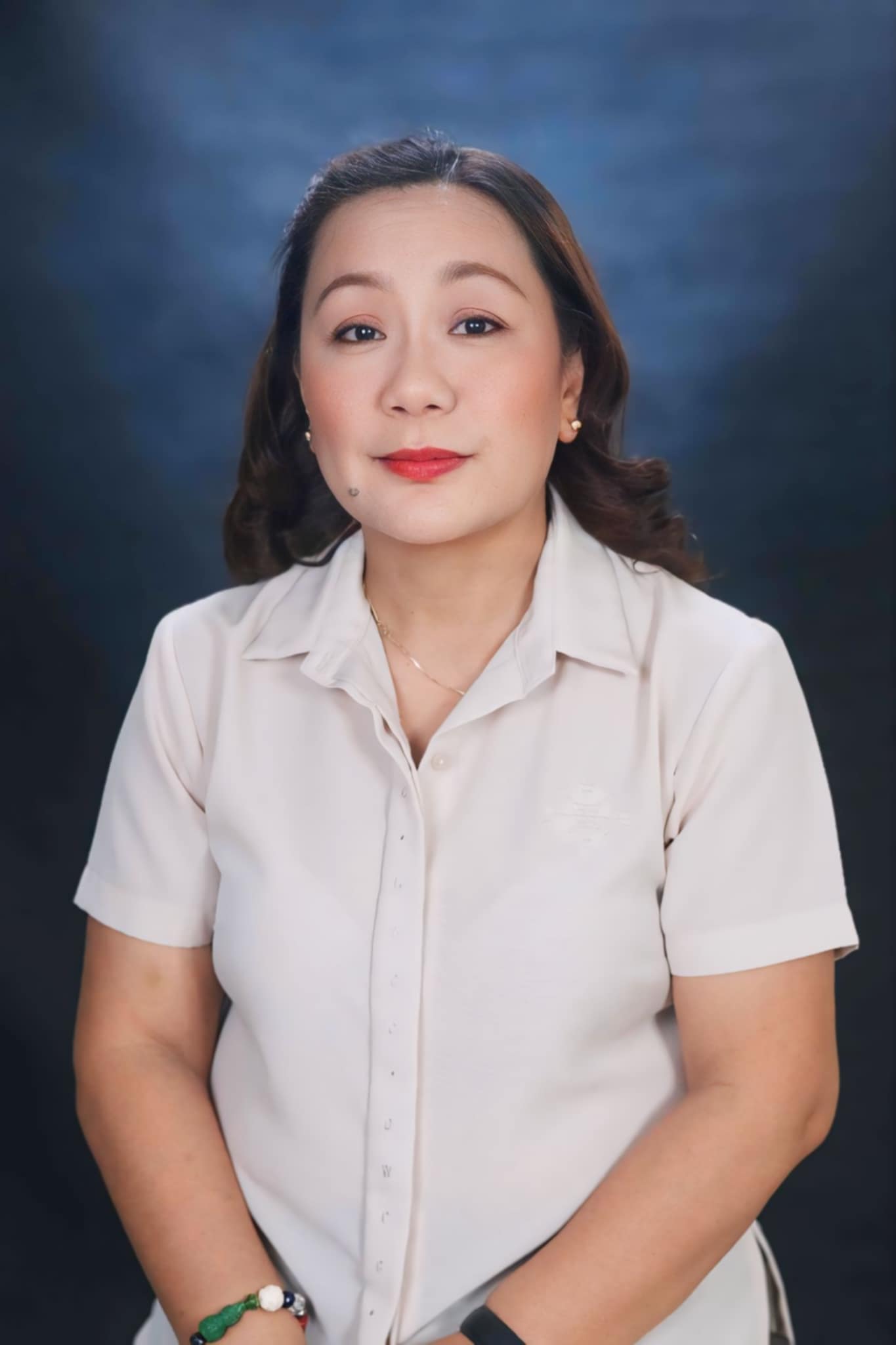
Ms. REMADEL C. BANDOLIN
Student Council Adviser, TLE Teacher
- Bachelor of Secondary Education major in Home Economics
- Affiliated to Home Economics Association of the Philippines

Ms. CAMILLE Z. CARPIO
Grade 8 Adviser, Science Teacher
- Bachelor in Secondary Education major in General Science

Ms. MILA A. CASTRO
Academic Coordinator, Mathematics Teacher
- Bachelor in Secondary Education major in Mathematics
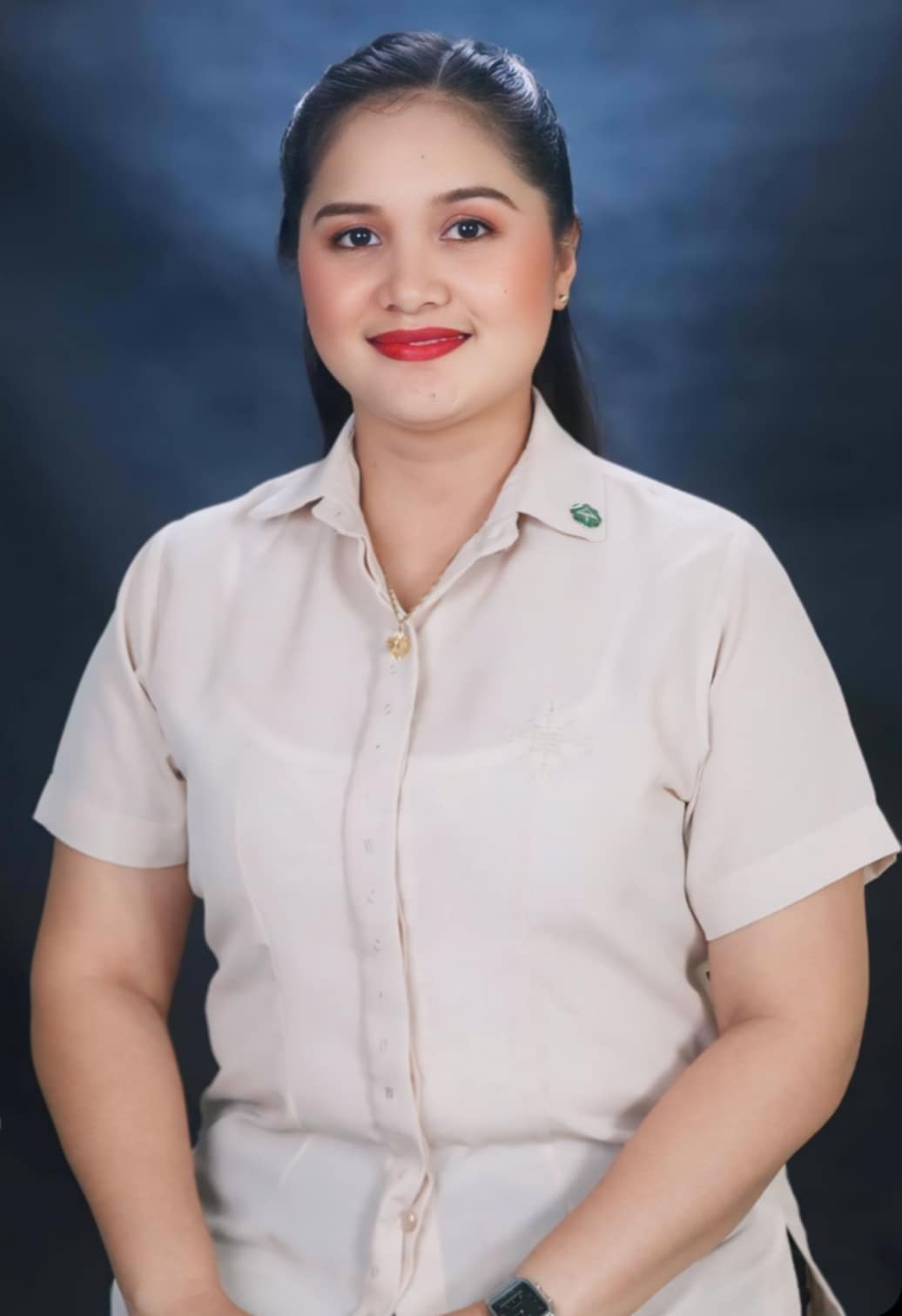
Ms. AIMEE M. CATAPANG
Grade 7 Adviser, Science Teacher
- Bachelor in Secondary Education major in Biological Science
- Affiliated to LWEC

Mr. JOSHUA B. DALANGIN
Grade 9 Adviser, Mathematics Teacher
- Bachelor in Secondary Education major in Mathematics

Ms. JOMALYN F. DALUMPINES
Grade 8 Adviser, Mathematics Teacher
- Bachelor in Secondary Education major in Mathematics

Ms. BIANCA JOY D. DE TORRES
Grade 9 Adviser, English Teacher
- Bachelor in Secondary Education major in Physical Science
- Affiliated to PAFTE
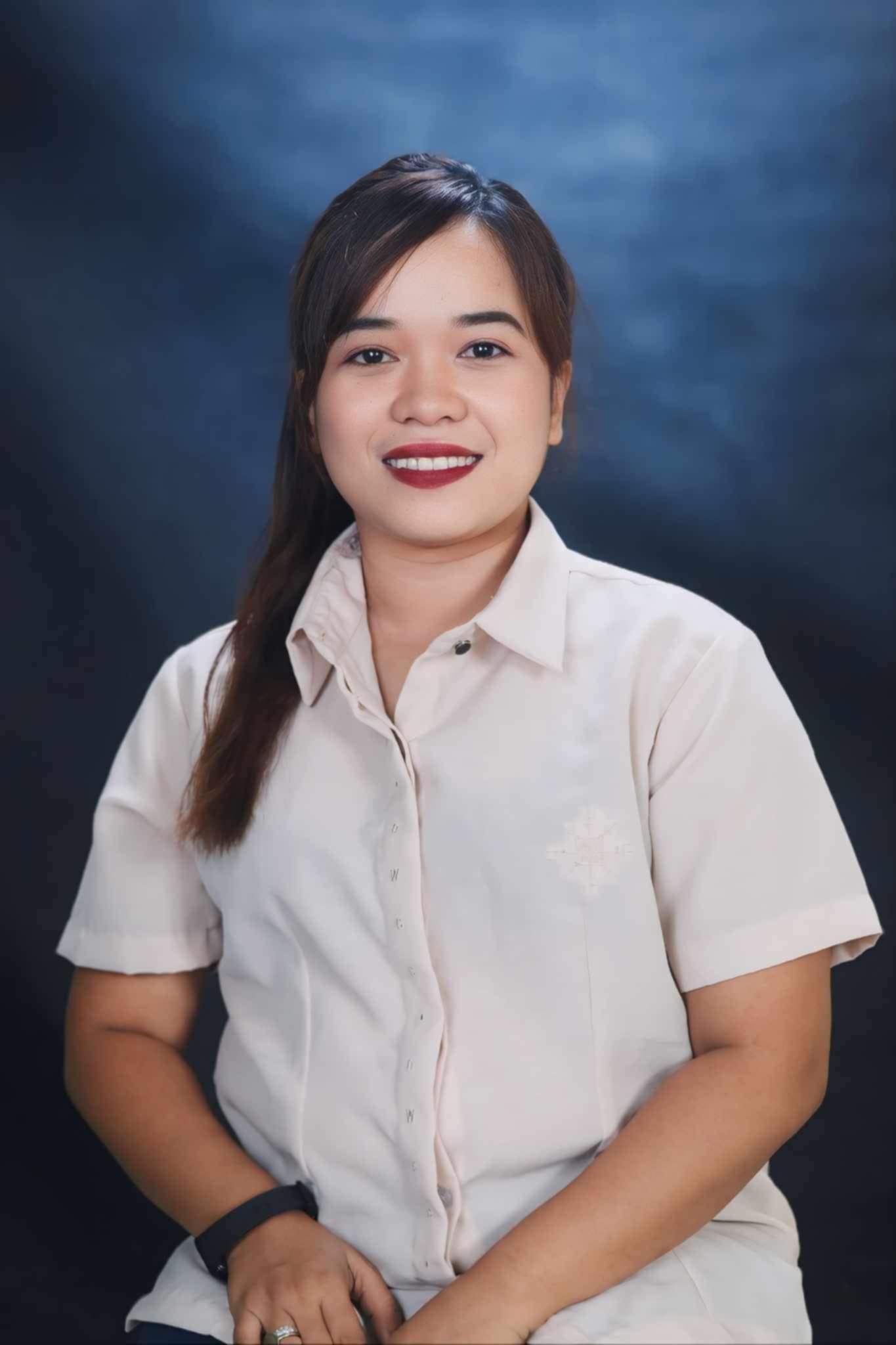
Ms. LEYDEN A. DORADO
Grade 9 Adviser, Filipino Teacher
- Bachelor in Secondary Education major in Filipino

Ms. DONNA A. FAMILARA
Grade 7 Adviser, TLE and AP Teacher
- Bachelor of Technical Teacher Education

Ms. JONA JANE G. GARCIA
Grade 8 Adviser, CL Teacher
- Bachelor of Secondary Education major in Filipino

Ms. MIRIAM H. GARCIA
Grade 7 Adviser, AP Teacher
- Bachelor of Secondary Education major in English
- Affiliated to LWEC

Ms. ERIKA MARIS D. JANDA
MAPEH Teacher
- Bachelor in Secondary Education major in MAPEH

Ms. JUDITH A. MENDOZA
Grade 7 Adviser, Filipino Teacher

Mr. FERNANDO M. REDUBLO JR.
Sports Coordinator, MAPEH Teacher
- Bachelor of Arts major in History
- Affiliated to Philippine Volleyball Federation, Samahan ng Basketbol ng Pilipinas and DepEd Teachers Umpire Group

Ms. JEDIAH HANNAH GRACE A. SANCHEZ
Grade 9 Adviser, Mathematics Teacher

Mr. ROMMEL M. SANCHEZ
Grade 10 Adviser, Science Teacher

Ms. VILMA M. SARMIENTO
TLE Teacher
- Bachelor of Secondary Education major in Home Economics
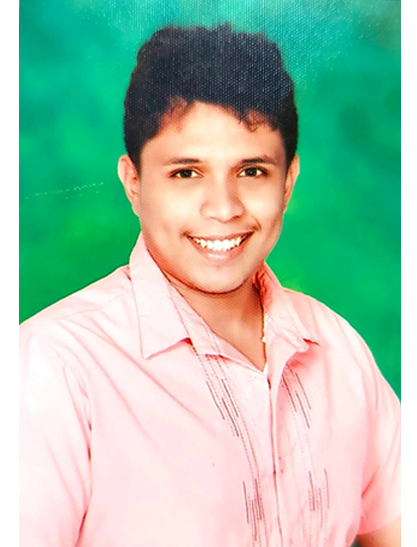
Mr. JOMARI A. UY
English Teacher
- Bachelor in Secondary Education major in English
- Affiliated to The New Horizon
The Junior High school About is currently updating its content. It will be posted soon.
DepEd Subjects
Elective Subjects (SSC)
Elective Subjects (Regular)
| Integrated Language Arts (Filipino and English) | Filipino and English subjects aim for the development of oral and written written communicative competence of learners. It observed a spiral progression of the competencies across the level. For secondary, there is a greater emphasis on reading comprehension, writing, and thinking strategies. |
| Mathematics | Mathematics is a subject that pervades life at any stage. It ensures continuity of learning through progression of topics in five content areas: Numbers and Number Sense, Geometry, Patterns and Algebra, Measurement, and Statistics and Probability. |
| Science | Science develops scientific literacy among students towards application of scientific knowledge that will have social, health and environmental impact. Concepts and skills in Life Sciences, Physics, Chemistry and Earth Science are presented with increasing levels of complexity. |
| Araling Panlipunan | Araling Panlipunan contain concepts about self, community and local history of the learner. It covers a deeper understanding of the history, geography, politics, economy and national development in Philippine, Asia and in world. |
| Edukasyon sa Pagpapakatao with Christian Living | Edukasyon sa Pagpapakatao (ESP) focuses on honing an individual’s capacity to make moral and ethical decisions and actions. ESP is based on ethics and career guidance which covers concept of self and humanity, moral values, career choices and responsibility. |
| Technology and Livelihood Education with Computer | TLE courses equips knowledge and information, skills and processes, right work values and life skills in the field of Home Economics, Industrial Arts, Agri-Fishery Arts, and Information Communication Technology. |
| MAPEH | -Music and Arts focus on the learner as both recipient and constructor of knowledge, skills and values necessary for artistic expression and cultural literacy. -Physical Education is anchored on the tenet, “Move to learn, learn to move” with the ultimate goal of achieving lifelong fitness.-Health education focuses on the physical, mental, emotional, social, moral and spiritual dimensions of holistic health, promote good nutrition, prevent and control disease, abuse and control injuries. |
| Basic Statistics w/ Research | Basic Statistics w/ Research is designed to provide a basic understanding of descriptive and inferential statistics. Topics include the basic concepts of statistics, collection, organization, presentation, analysis and interpretation of data, measures central tendency, variability, position, probability and qualitative research. |
| Earth Science | Earth Science study the interaction of the earth sciences and physical world. Special topics and fieldwork from the disciplines of geology, astronomy, meteorology, oceanography, and related sciences may be covered. |
| Intermediate Algebra | Intermediate Algebra course covers operations with real numbers, graphs of functions, domain and range of functions, linear equations and inequalities, quadratic equations; operations with polynomials, rational expressions, exponents and radicals; equations of lines. |
| Research in Science | Research in Science focuses on the Science Investigatory Process. SIP is a scientific research project typically undertaken in school as a class or term project or in a science fair or exhibition. It is meant to get school-children interested and inquisitive about science. |
| Advanced Statistics w/ Research | Advanced Statistics w/ Research is designed to provide a basic understanding of descriptive and inferential statistics. Topics include the random variables, normal distribution, sampling distribution, test of hypothesis, correlation and regression analysis and quantitative research writing. |
| Basic Physics | Basic Physics course provide basic concepts and understanding in the nature and properties of matter and energy. Topics focuses on motion, energy, waves, sound, light, heat and electricity. |
| Advanced Chemistry | Advanced Chemistry is designed to focus on the Composition, structure, and properties of matter; quantitative principles, kinetics, and energetics of transformations of matter; and fundamental concepts of organic chemistry. |
| Research | Research allows students to deeply explore an academic topic, problem, issue, or idea of individual interest. Students design, plan, and implement a yearlong investigation to a address a research question. Through this inquiry, they further the skills they acquired in research by learning research methodology, employing ethical research practices, and accessing, analyzing, and synthesizing information. Students reflect on their skill development, document their processes, and curate the artifacts of their scholarly work through a process and reflection portfolio. |
| Speech | Speech subject provides drills and exercises based on standard general American speech using the International Phonetic Alphabet and develop English Rhythm through word stress, intonation, phrasing and blending skills. |
| Journalism | This course informed the students about the impact and importance of journalism in a society. The roles of journalism will also be highlighted as well as the different categories of journalism. Moreover, they will be enlightened how to uncover the truth and injustices. It is also important to inculcate in their minds the significance of freedom of information and to be updated to what is happening in the word. |
| Business Mathematics | This course will provide an understanding of the basic concepts of Mathematics as applied in business. It includes the review of fundamental mathematics operations using decimals, fractions, percent, ratio and proportion, buying and selling, gross and net earnings, and data presentation. |
| Statistics | Statistics will serve students both science and non-science especially in engineering, mathematics, statistics, computer science, or natural science. This coursed have endeavoured to achieve sound statistical data by reducing the large amounts of data into useful information. |
Grading System
A. The grading policies and procedures of Divine Word College of Calapan High School Department are based on the DepEd Order No.8, series of 2015, “POLICY GUIDELINES ON CLASSROOM ASSESSMENT FOR THE K TO 12 BASIC EDUCATION PROGRAM.”
The K to 12 Basic Education program uses standards-and competent-based grading system. These are found in the curriculum guides. All grades will be based on the weighted score of the to pass a specific learning area is 60, which is transmuted to 75 in the report card. The lowest mark that can appear on the report card is 60 for Quarterly Grades and Final Grades.
Learners from Grades 1 to 10 are graded on Written Work Performance Task and Quarterly Assessment every quarter. These three are give specific percentage weights that vary according to the nature of the learning area.
For Grades 1 to 10In a grading period, there is one Quarterly Assessment but there should be instances for students to produce Written Works and to demonstrate what they know and can do through Performance Tasks. There is no required number of Written Work and performance Tasks, but these must be spread out over the quarter and used to assess learners' skills after each unit has been taught. The following are the steps in computing for the Final Grades.
Step 1. Grades from all student work are added up. This results in the total score for each component, namely Written Work, Performance Tasks, and Quarterly Assessment. Raw scores from each component have to be converted to a Percentage Score. These are parallel to each other to ensure that values are parallel to each other.
Step 2. The sum of each component is converted to the Per Score. To compute the Percentage Score (PS). di raw score by the highest possible score then multiply by 100%. This shown below:
Step 3. Percentage Scores are then converted to Weighted Scores to show the importance of each component in promoting learning in the different subjects.
To do this, the Percentage Score is multiplied by the weight of the component found in the Table 4 for Grades 7-10 The product is known as the Weighted Score (WS).
WEIGHTED SCORE (WS) = Percentage Score X Weight of Component
Table 4. Weight of the Components for Grades 1-10.
| GRADES | COMPONENT | LANGUAGES, AP, EsP | Science, Math | MAPEH, EPP/TLE |
| 1-10 | WRITTEN WORK | 30% | 40% | 20% |
| PERFORMANCE TASK | 50% | 40% | 60% | |
| QUARTERLY ASSESSMENT | 20% | 40% | 20% |
Step 4. The sum of the weighted Scores in each component is the Initial Grade. This Initial Grade will be transmuted.
Step 5. The Quarterly Grade for each learning area is written in the report card of the student.
B. There shall be four (4) grading periods and averaging system in getting the general
C. The passing grade in any given subject shall be seventy-five (75) The lowest grade that can be given to a student after transmutation of performance shall be sixty (60).
D. Any student representing the school is assured that his/her academic grades will not be affected while attending out-of-school activities approved and recognized by the institution such as seminars workshops, contest, camps, fairs, conferences and other and provided he/she complied with other requirements by the subject teacher.
E. A student representative who is a winner in a contest will be given a special consideration such as exemption from some subject requirements and or increase in grades especially to some related subject areas.
F. A student-representative who is non-winner will also be given a special consideration to related subjects but increase in depends on the performance in the contest.
PROMOTION AND RETENTIONThe following requirements for promotion or graduation of a student from any recognized educational program or course shall be observed and strictly followed every private school (sec. 80 Manual).
- No student shall be given any school credit toward the completion of or graduation from a program or course, unless he/she has enrolled and satisfactorily fulfilled the admission requirements, faithfully and regularly attended classes, and acquired reasonable proficiency in each subject of the approved curriculum (Sec. 82, Manual) promotion shall be by learning areas. A student who fails in one (1) or two (2) learning areas is promoted to the next year level shall repeat the learning areas in which he/she failed. (DepEd Order No.43, S 2002)
- No student shall be permitted to take any advanced subject until he/she satisfactorily passed the basic and prerequisite subject/s To pass a subject, a student should receive a final rating of 75% or its equivalent A student who receives a final rating of less than 75% or its equivalent shall be considered failed and should repeat the subject The passing grade in any learning area shall be 75%, while the lowest grade that can be given to a student after the transmutation of the performance shall be 60%. (DepEd. Order No 8, s.2015).
- The record of attendance and grading sheets for each school year should be filed in the school until the end of the next school year or term, for reference or examination in case of any grievance or complaint.
A student in the DWCC BED who fails in any grade level at the end. of the school year will be advised to transfer to another school. This is deemed to be for the best interest of the student who, apparently, is unable to cope with the academic standard of the school.
REPORT CARDS (Form 138)- Report cards, which are considered official documents, are issued on schedule dates. These are to be signed by the parent/guardian and to be return to class adviser within three (3) days after receipt.
- Tampering of the report card is considered a major offense.
- Any student who signs his report card or causes any unauthorized person to sign it is also committing a serious offense.
The Junior High school organizational structure is currently updating its content. It will be posted soon.

Ms. WELLA JOISE T. ABELGAS
Grade 10 Adviser, TLE and AP teacher
- Bachelor of Secondary Education major in Technology and Livelihood Education

Ms. AIRA CAMILLE D. ALCALA
Grade 10 Adviser, English Teacher
- Bachelor in Secondary Education major in English

Mr. REDINTOR C. BACATAN
Grade 8 Adviser, Filipino Teacher
- Bachelor in Secondary Education major in Mathematics

Ms. REMADEL C. BANDOLIN
Student Council Adviser, TLE Teacher
- Bachelor of Secondary Education major in Home Economics
- Affiliated to Home Economics Association of the Philippines

Ms. CAMILLE Z. CARPIO
Grade 8 Adviser, Science Teacher
- Bachelor in Secondary Education major in General Science

Ms. MILA A. CASTRO
Academic Coordinator, Mathematics Teacher
- Bachelor in Secondary Education major in Mathematics

Ms. AIMEE M. CATAPANG
Grade 7 Adviser, Science Teacher
- Bachelor in Secondary Education major in Biological Science
- Affiliated to LWEC

Mr. JOSHUA B. DALANGIN
Grade 9 Adviser, Mathematics Teacher
- Bachelor in Secondary Education major in Mathematics

Ms. JOMALYN F. DALUMPINES
Grade 8 Adviser, Mathematics Teacher
- Bachelor in Secondary Education major in Mathematics

Ms. BIANCA JOY D. DE TORRES
Grade 9 Adviser, English Teacher
- Bachelor in Secondary Education major in Physical Science
- Affiliated to PAFTE

Ms. LEYDEN A. DORADO
Grade 9 Adviser, Filipino Teacher
- Bachelor in Secondary Education major in Filipino

Ms. DONNA A. FAMILARA
Grade 7 Adviser, TLE and AP Teacher
- Bachelor of Technical Teacher Education

Ms. JONA JANE G. GARCIA
Grade 8 Adviser, CL Teacher
- Bachelor of Secondary Education major in Filipino

Ms. MIRIAM H. GARCIA
Grade 7 Adviser, AP Teacher
- Bachelor of Secondary Education major in English
- Affiliated to LWEC

Ms. ERIKA MARIS D. JANDA
MAPEH Teacher
- Bachelor in Secondary Education major in MAPEH

Ms. JUDITH A. MENDOZA
Grade 7 Adviser, Filipino Teacher

Mr. FERNANDO M. REDUBLO JR.
Sports Coordinator, MAPEH Teacher
- Bachelor of Arts major in History
- Affiliated to Philippine Volleyball Federation, Samahan ng Basketbol ng Pilipinas and DepEd Teachers Umpire Group

Ms. JEDIAH HANNAH GRACE A. SANCHEZ
Grade 9 Adviser, Mathematics Teacher

Mr. ROMMEL M. SANCHEZ
Grade 10 Adviser, Science Teacher

Ms. VILMA M. SARMIENTO
TLE Teacher
- Bachelor of Secondary Education major in Home Economics

Mr. JOMARI A. UY
English Teacher
- Bachelor in Secondary Education major in English
- Affiliated to The New Horizon
